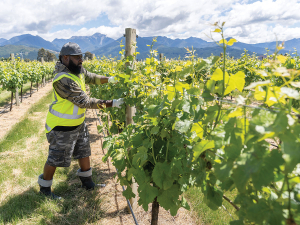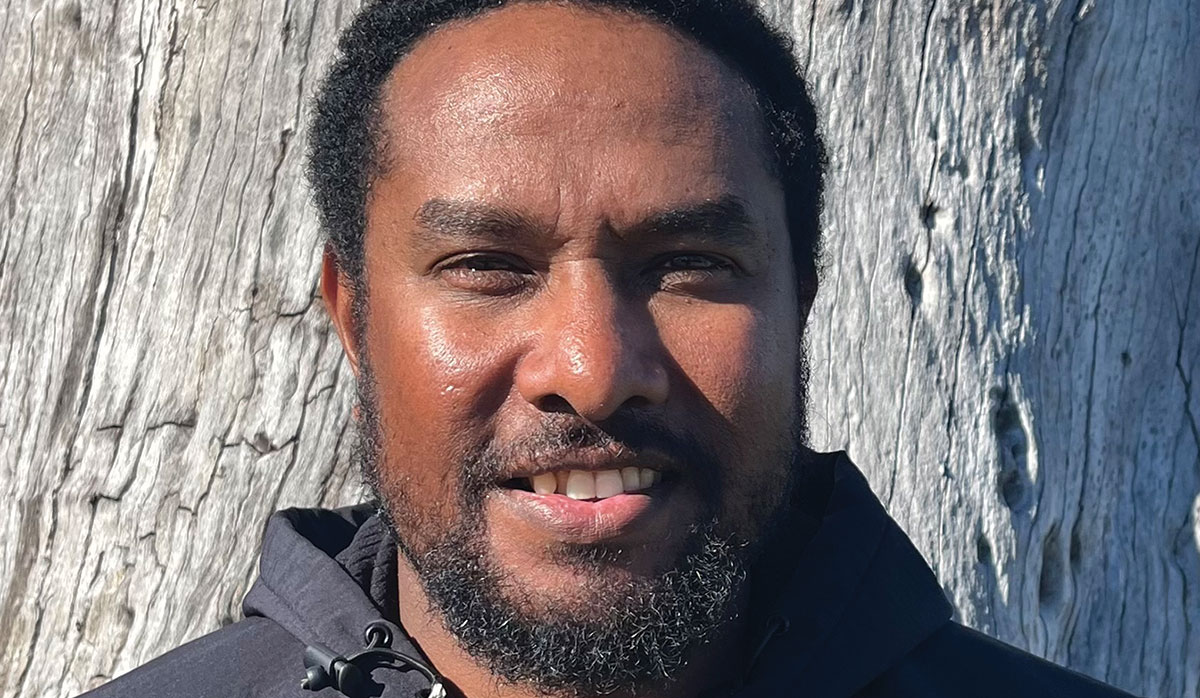Cloudy Bay Good Pick Initiative Supports RSE Workers’ Small Business Ventures
When Ben Enock came to New Zealand for vineyard work in 2007, his primary aim was to pay for his children's education at home in Vanuatu.
 Asio Avock wants to start a vegetable farm in Vanuatu with his cousin, utilising learnings from Vakameasina and assistance from Cloudy Bay’s Good Pick Fund, as part of the Village to Village Charitable Trust.
Asio Avock wants to start a vegetable farm in Vanuatu with his cousin, utilising learnings from Vakameasina and assistance from Cloudy Bay’s Good Pick Fund, as part of the Village to Village Charitable Trust.
A new social enterprise to repay the sacrifice of seasonal workers represents chicken feed for Allain Liu-Vitivae - in all the right ways.
Cloudy Bay's Good Pick Fund, as part of the Village to Village Charitable Trust programme, has launched an initiative to bolster the business aspirations of Recognised Seasonal Employer (RSE) scheme workers in their home nations, including the chicken farm plans of its inaugural recipient. Allain, who has been an RSE worker in New Zealand for 10 years, has returned to his home island of Ambae, Vanuatu, to establish an egg business, with plans to buy 100 hens and build shelter and fencing. Having undertaken a small business and financial literacy programme through Vakameasina in Marlborough Allain applied to Cloudy Bay's Good Pick Fund for an interest free loan of nearly $6,000.
As well as the money, Allain will receive mentoring as he builds his business, ultimately paying back the loan so it can go on to another recipient. "He's got a passion. He's got a dream," says Cloudy Bay's Jim White, who is also a trustee on the Village to Village board. "We want to find the people with a vision and idea and want to turn that into reality."
Speaking at an event launching the new programme and shining a light on the wider Village to Village social enterpise, Jim told attendees that the Good Pick Fund had emerged from the Covid-19 lockdown period, when thousands of RSE workers were stranded throughout New Zealand for up to two years, exacerbating the huge sacrifice made by visiting vineyard staff. In a normal season, winter and summer crews can be away from their families and communities for up to seven months at a time. These seasonal workers are a "fundamental" part of the wine industry's workforce, representing around 30% of Cloudy Bay's entire workstream, Jim says. So when staff at Cloudy Bay began looking for a valuable social enterprise, giving back to the RSE workforce and their home communities was an ideal fit. "To repay that sacrifice workers and their families have made."
The second recipient of the Good Pick Fund is set to be Asio Avock, who works with Hortus in Marlborough. He wants to start a vegetable farm on Espiritu Santo in Vanuatu, working with his cousin to grow food to sell to schools and at markets. Asio has been an RSE worker for 12 years and considers Hortus his extended family, so has every intention of continuing to work in New Zealand when he can, while his cousin runs the day-to-day operations of the farm. Asio's seasonal work has seen him buy land and build a house for his former partner and their children, then buy land for his parents, as well as two hectares for the farm. Establishing a business with his cousin, while utilising learnings from Vakameasina courses and mentorship from Hortus and Cloudy Bay, is another way of ensuring his wider community benefits from his time in New Zealand.
Jim says the Good Pick Fund, which aligns with the philosophy of parent company Moet Hennessy to grow entrepreneurship in horticulture, hit its strap when Cloudy Bay dovetailed into Village to Village, a social enterprise established in 2021 to sponsor clean energy cookstoves in the Pacific Islands. Village to Village founders Tracy Atkin and Sarah Bates were inspired after helping deliver a business and financial literacy course for RSE workers, deepening their understanding of the sacrifices being made by individuals, families and communities in helping New Zealand's wine industry thrive.
They decided to reciprocate in a practical way by offering alternatives to the open fires that impact eye and respiratory health in the Pacfic Islands, while raising funds for community-driven initiatives in the Pacific Islands. Initial sponsors Dog Point Vineyard, Tūpari Wines, Entrepreneurial Women with Purpose, Focus Labour Solutions and BDO were applauded at the launch event, as was Zespri, which gave $20,000 from its RSE fund, enabling nearly 50 cookstoves to be distributed across three islands in a pilot scheme. Speaking at the event, Tracy revealed that a grant of $15,000 was awarded in November 2024 by the Pacific Development and Conservation Trust, administered by the Department of Internal Affairs. She called on anyone with ideas for distributing the cooktops enabled by that grant to get in touch, describing Village to Village as a hub and spokesmodel, building relationships with NGOs and government organisations to ensure the greatest impact.
 |
|---|
|
Allain Liu-Vitivae |
As well as cookstove sponsorship and microbusiness loans, Village to Village has also launched the Lina Narawai Education Scholarship, with $100 from each ticket to the launch event at Cloudy Bay going towards that fund. The scholarship was requested by Donald Narawai, who has worked under the RSE scheme in New Zealand since the programme began in 2007. Viticultura owner Timbo Deaker says Donald is a "hero" to many in the wine industry, from their clients to his fellow RSE workers. "I love the word Mana when taking about Donald," Timobo says. So when Lina passed away, he and business partner Jason Thomson worked with Donald on plans for a scholarship, and reached out to wine industry partners, finding a swift response from Jim at Cloudy Bay and then Village to Village. Attendees at the launch event watched a video of Charlie Giliala, Lenakel College Principal on Vanuatu's Tanna Island. "Students who will be receiving this scholarship, as of next year, I believe it will change their life," he said.
Village to Village has been a "three-year overnight success", says Tracy, calling Cloudy Bay involvement a "real pinch-me moment". She hopes there'll be plenty of momentum from here on. With 20,000 RSE workers from nine Pacific partners working in New Zealand's viticulture and horticulture industry each year, the charity is about reciprocity, she adds. "Giving back to the communities that do so much for us."
New RSE Training Provider
Eastern Institute of Technology will run phase three of the Recognised Seasonal Employer (RSE) Worker Training Programme, offering education and training opportunities to seasonal workers from the Pacific Islands. The programme, previously run by Fruition Horticulture through Vakameasina, is funded by the New Zealand Ministry of Foreign Affairs and Trade to deliver meaningful and transferable skills. More than 7,000 RSE workers have benefited from training over the past six years, and the third phase will see New Zealand commit $10.7 million over five years to support more than 10,000 RSE workers, with a focus on increasing the number of participants, and piloting new courses to respond to the priorities of workers and the Pacific countries they hail from. It will also pilot formal recognition of learning. “We are a trusted education provider with a proven track record,” says Paul Hursthouse, EIT’s Director – Business Relationships and Transitions. “The RSE scheme plays a significant role in New Zealand’s economy and we are pleased to partner with MFAT and horticulture employers to offer RSE workers opportunities to develop and acquire new skills.” The programme is set to begin this year and will initially be delivered in Hawke’s Bay, Bay of Plenty and Marlborough/Nelson.
villagetovillage.org.nz
Jimmy Stewart is quite literally chipping away at circularity.
A Wine Marlborough Lifetime Achievement Award is “very premature”, say Kevin and Kimberley Judd, nearly 43 years after they came…
Wine tourism has evolved into a sophisticated, diverse and resilient part of the New Zealand wine sector's economy. Emma Jenkins MW talks…